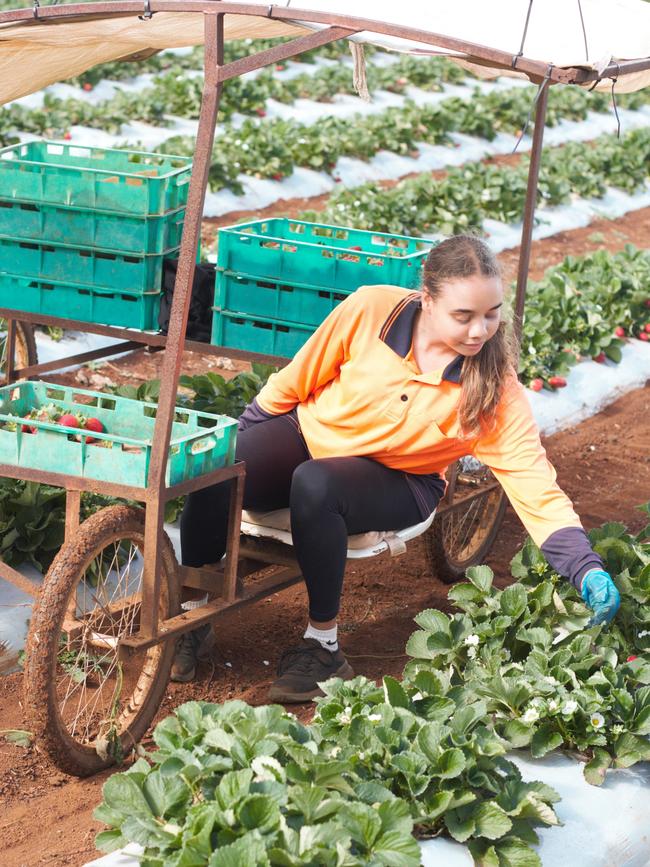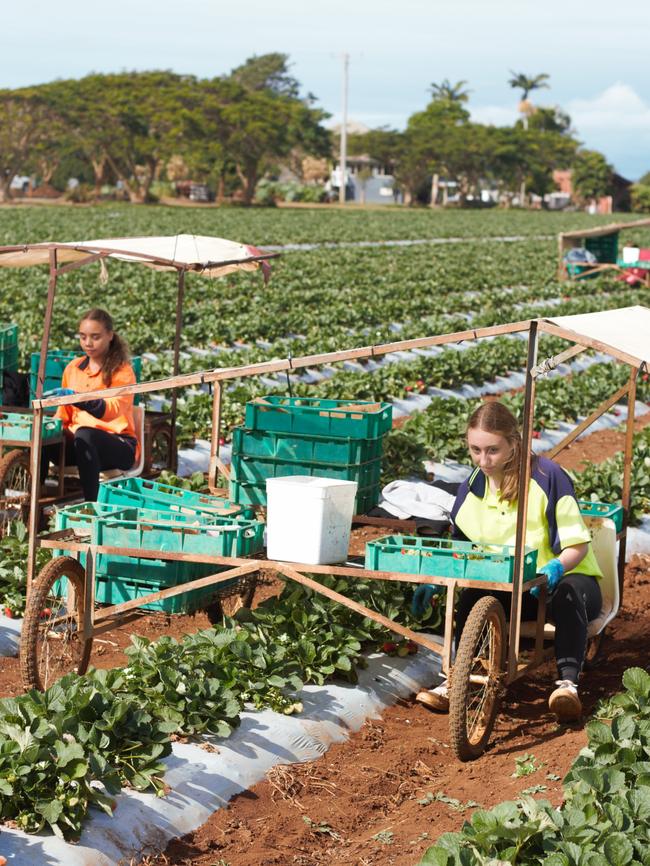Rural industry leaders reveal grim situation facing farmers
Bundaberg producers caught in the grip of the escalating price squeeze are being forced to contemplate a grim future as the rising cost of living bites hard, and fertiliser costs skyrocket by 174 per cent on top of fuel and electricity rises.
Bundaberg
Don't miss out on the headlines from Bundaberg. Followed categories will be added to My News.
The rising cost of living has had a grim impact on the region’s farmers, with fertiliser costs rising 174 per cent on top of fuel and electricity prices.
Fertiliser is the key ingredient in ensuring a crop develops to its full potential, and with prices rising farmers are being forced to cut costs.
CEO of farming advocacy group Bundaberg Fruit and Vegetable Growers Bree Grima said “farmers will either use less of a block, or spread fertiliser out”.
“Which can be quite challenging because at the end of the day you might not then end up with the productivity that you need and you’re paying a crew to pick a large block and there’s not a lot there,” she said.
Tina McPherson of locally grown Tinaberries said niche farms such as hers had little flexibility to change their existing fertiliser routine, particularly at this point in the season.
“It’s a bit tricky because all fertilisers have gone up, and we have a fairly specific recipe for how we achieve what we grow and we have spent a lot of time fine tuning that,” she said.

Nutrien Ag Solutions North East Region Fertiliser manager Paul Lomax said suppliers such as Nutrien Ag relied on third party purchases to supply Australia with fertiliser, but it was the exposure to global issues that impacted fertiliser prices.
“With strong reliance in Australia on imported urea, we are exposed to the current global dynamics impacting supply and demand.
“There are many factors impacting the price of fertiliser at the moment, including energy prices, the conflict in Ukraine, high freight prices, and strong demand globally,” he said.
All of these factors compound into one simple message.
“People are going to have to get used to paying more for food,” Bundaberg Cane Growers chairman Mark Pressler said.
“For me, if fertiliser prices don’t move from where they are, this time next year I will only grow half as many potatoes as I normally grow, because I won’t be able to afford to buy the fertiliser.
“I’m using half as much fertiliser, but only plant half as much area, so I can still give them what they need to still produce a saleable product, and the problem will be supply,” he said.

Supply and demand is a common issue across the region, with recent wet weather causing crop production delays on local farms.
Mrs McPherson said Tinaberries did its best to minimise waste through the recycling of lower quality strawberries into jams and ice creams sold at the farmgate shop.
This helps ensure that high input costs can be recouped and locals don’t miss out, she said.
“Being able to utilise that waste is an important part of our production, we are a small mum and dad farm, it’s about getting the best return,” Mrs McPherson said.
All of this is coupled with the fact that the average farmer in the region has little negotiating power for their final sale price.
“We are going to have to start recognising that we are price takers, we can’t pass along these costs, it’s gotten to the point now that it’s unsustainable,” Ms Grima said.
Import costs for machinery had also risen, leaving farmers stuck in the middle.

Macadamia Australia’s grower technical manager Rohan Orford said “there is a price squeeze and the bloke who has the least negotiating power is the farmer”.
Mr Orford acknowledged the historically good price the macadamia industry had, but said those rising costs would slow the industry down, at least for the next few years.
“Often what happens historically is the planting of trees slows down,” he said.
“Investors and people who put a lot of money into macadamia farms do this with a certain return in mind, but when the price starts dropping that doesn’t come across as lucrative as it did.
“Demand for trees drops off, and you see a drop off in excess of equipment purchases,” he said.
A drop of demand across several farming industries could mean less money being invested and spent in the region, less workers being employed to harvest less crops, and less equipment being imported.
Ms Grima said there was a silver lining to the growing pressure faced by farmers, and that it may encourage a more positive attitude to buying groceries.

“It’s creating a sense of appreciation. People are so used to the lettuce being there, they’re so used to picking up the same thing,” she said.
“I paid a good price for some zucchini the other day, and I tell you what, I took care of them, I cooked with them, and I enjoyed them and I didn’t throw them out.
“Perhaps it’s going to get consumers to start thinking differently about appreciating what it is they’re putting in the trolley and reducing food waste,” she said.
Mrs McPherson supported this when she said wholesalers and retailers needed to appreciate changes in input costs, and for the price to accurately reflect those changes.
“The consumer can have an effect by really choosing to buy local, and choosing to buy what’s in season and thinking about where they are spending their dollars,” she said.




